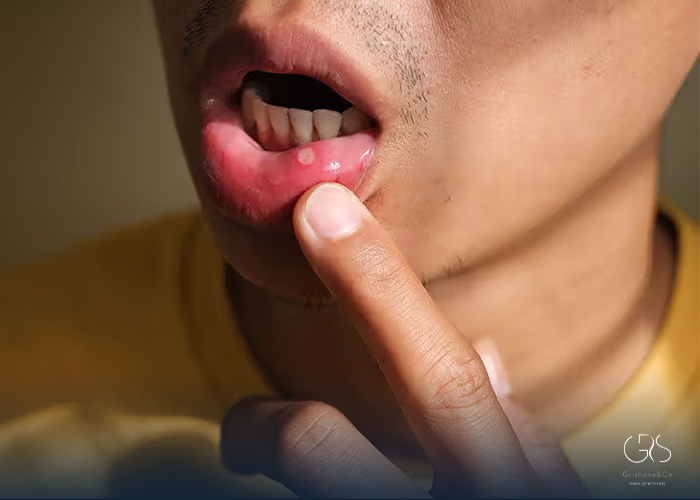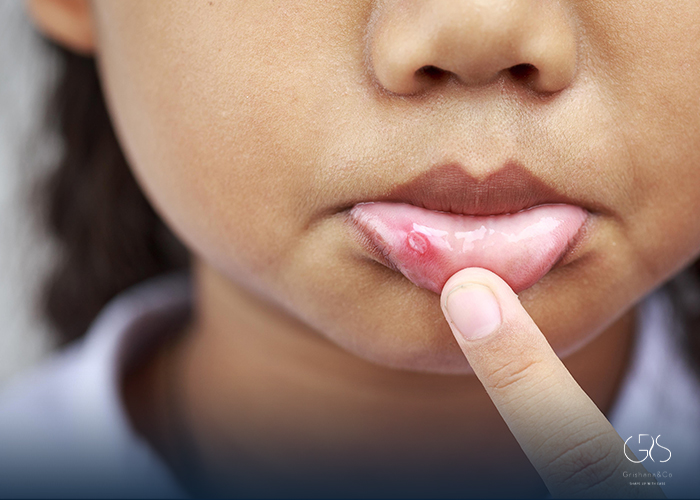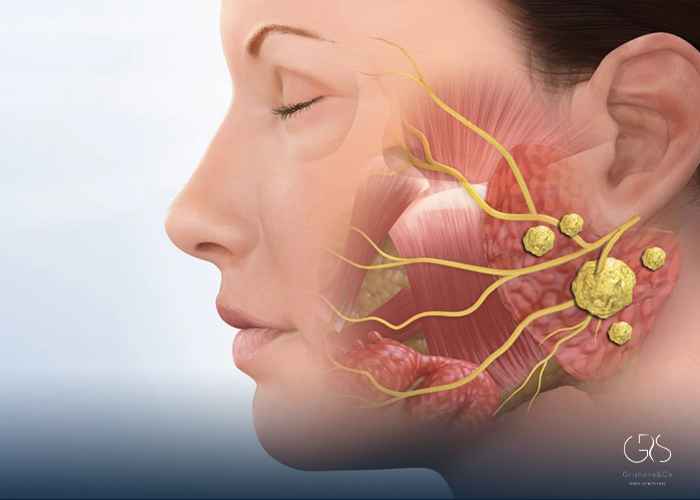Canker sores, or aphthous ulcers, are a common yet painful oral condition that affects a significant number of individuals worldwide. These small lesions can occur inside the mouth, on the tongue, cheeks, gums, and even on the lips, causing discomfort and inconvenience in everyday activities like eating and speaking. Understanding the causes, symptoms, treatment, and prevention of canker sores is crucial to alleviate their impact on individuals’ daily lives.
2. What are Canker Sores?
Canker sores are shallow, round or oval-shaped ulcers that appear on the soft tissues in the mouth. They are typically white or yellowish in color, surrounded by a red area, and can vary in size, ranging from a few millimeters to larger than a centimeter. Unlike cold sores (fever blisters), canker sores are not contagious and cannot be transferred from one person to another.
3. Types of Canker Sores
There are three main types of canker sores: minor, major, and herpetiform.
- Minor canker sores: These are the most common type, accounting for approximately 80% of all cases. Minor canker sores are small, round ulcers that heal within one to two weeks without scarring.
- Major canker sores: These are less common but cause more severe symptoms. Major canker sores are larger and deeper, often taking several weeks or even months to heal. They may leave behind scars after healing.
- Herpetiform canker sores: This type is the least common and usually affects older individuals. Herpetiform canker sores appear as clusters of small ulcerations, resembling the sores caused by the herpes virus. They tend to heal within a couple of weeks but can be very painful.
4. Causes of Canker Sores
The exact cause of canker sores remains unknown, but several factors have been identified as potential triggers:
- Oral trauma: Accidental biting of the lip or tongue, dental procedures, or aggressive tooth brushing can cause tissue damage, leading to the development of canker sores.
- Emotional stress: High-stress levels are often associated with an increased risk of canker sores. Stress weakens the immune system and can contribute to the development and severity of ulcers.

- Diet and nutritional deficiencies: Certain foods, such as acidic or spicy foods, can irritate the mouth and trigger canker sores in susceptible individuals. Additionally, deficiencies of certain vitamins and minerals, such as vitamin B12, zinc, and iron, have been linked to an increased incidence of canker sores.

- Hormonal changes: Some women experience canker sores during their menstrual cycle, suggesting a possible hormonal influence on their development.
- Other factors: Certain health conditions, such as celiac disease, Crohn’s disease, and HIV/AIDS, can increase the likelihood of developing canker sores. Genetics may also play a role, as some individuals are more prone to developing these ulcers than others.
5. Symptoms of Canker Sores
The symptoms of canker sores can vary depending on the type and severity of the ulcers. Common symptoms include:
- Pain or discomfort: Canker sores can cause a significant amount of pain, especially while eating or speaking. This discomfort can last for several days or weeks.

- Redness and inflammation: The area surrounding the ulcer often appears red and inflamed, and in some cases, the surrounding tissues may become swollen.

- Open sores: Canker sores typically have a white or yellowish center with a red border. They may vary in size and shape, and multiple ulcers can occur simultaneously.
- Difficulty in eating and drinking: Severe canker sores may make it painful or difficult to consume certain foods and beverages, leading to dietary restrictions.
- General malaise: Some individuals may experience a feeling of general malaise, including fatigue and a mild fever.
6. Diagnosis of Canker Sores
In most cases, canker sores can be diagnosed by their appearance and symptoms. However, if the sores are severe, persistent, or accompanied by other unusual symptoms, a healthcare professional may perform additional tests to rule out underlying systemic conditions or infections.
7. Treatment for Canker Sores
While canker sores usually heal on their own within one to two weeks, several treatment options can help alleviate symptoms and speed up the healing process:
- Over-the-counter ointments and mouthwashes: Topical treatments containing ingredients such as benzocaine, hydrogen peroxide, or corticosteroids can provide temporary relief and promote healing.
- Prescription medications: In severe cases, a healthcare professional may prescribe stronger corticosteroid rinses, oral medications, or topical pastes to reduce inflammation and speed up healing.
- Pain relief measures: Over-the-counter pain relievers like acetaminophen or ibuprofen can help manage the discomfort associated with canker sores.
- Home remedies: Rinsing the mouth with saltwater or baking soda solutions can help relieve pain and promote healing. Avoiding spicy or acidic foods and using a soft-bristled toothbrush can also aid in the healing process.
8. Prevention of Canker Sores
Although it is not always possible to prevent the development of canker sores, certain measures can help reduce their occurrence and severity:
- Maintain good oral hygiene: Brush your teeth gently with a soft-bristled toothbrush and floss daily to prevent oral trauma and infections.

- Avoid trigger foods: If you are prone to canker sores, try to identify and avoid foods that may trigger them, such as spicy or acidic foods.
- Manage stress levels: Engage in stress-reducing activities, such as exercise, meditation, or counseling, to minimize the impact of emotional stress on your overall health.
- Ensure a balanced diet: Consume a well-balanced diet rich in vitamins and minerals to support overall oral health and prevent nutritional deficiencies.
- Consult a healthcare professional: If canker sores become frequent or persistently severe, consult a healthcare professional for further evaluation and advice.
9. Complications Associated with Canker Sores

While canker sores themselves are not considered dangerous or life-threatening, they can lead to complications in some cases:
- Infection: When canker sores become severe, they can become susceptible to bacterial infections, leading to increased pain, swelling, and prolonged healing time.
- Nutritional deficiencies: Severe canker sores can make eating difficult, potentially leading to a decreased intake of essential nutrients and resulting in nutritional deficiencies.
- Impact on quality of life: The pain and discomfort caused by canker sores can significantly impact an individual’s quality of life, affecting their ability to eat and speak comfortably, causing social anxiety, and leading to decreased overall well-being.
10. Diverse Perspectives on Canker Sores
Although canker sores are a common condition, they can have different effects on individuals from various backgrounds. Cultural and personal beliefs and attitudes towards oral health and the perception of pain can influence the experience of canker sores. It is important to take into account the diverse perspectives and experiences of individuals when discussing canker sores and their impact on daily life, especially when considering effective canker sore treatment options.
11. Conclusion
Canker sores are a prevalent oral condition that can cause significant discomfort and inconvenience. Understanding the causes, symptoms, and treatment options for canker sores is essential to alleviate their impact on individuals’ daily lives. By adopting preventive measures and seeking appropriate treatment, individuals can manage canker sores effectively, promoting oral health and overall well-being.
Sources
- Mayo Clinic, Canker sores: Causes.
- WebMD, Canker Sores: Causes, Treatments, Symptoms, and More
- National Institute of Dental and Craniofacial Research, Canker sores (aphthous ulcers).










